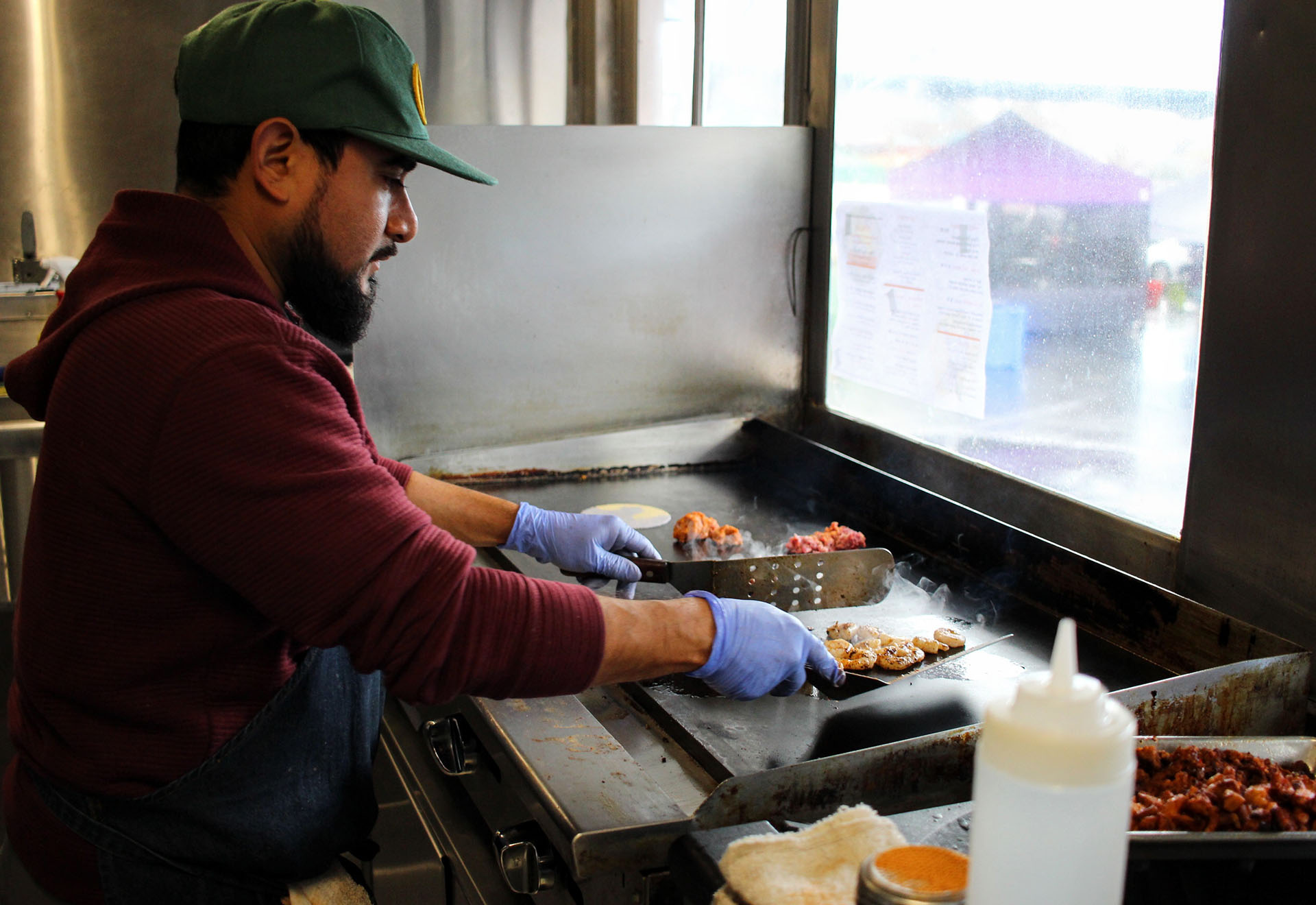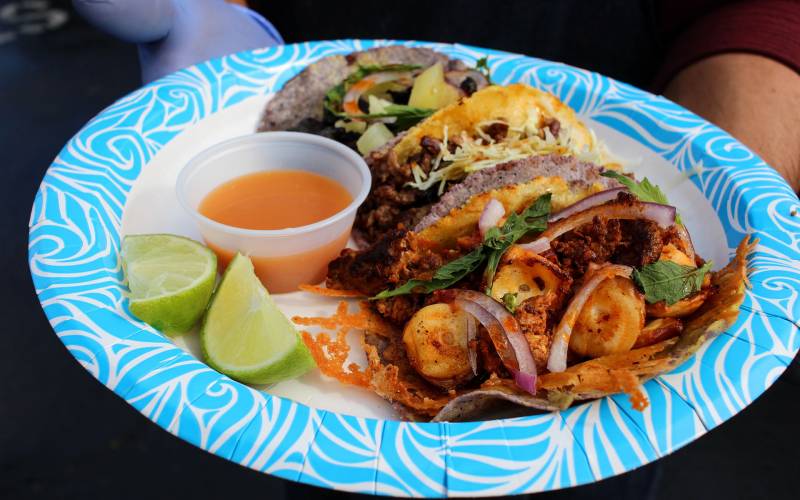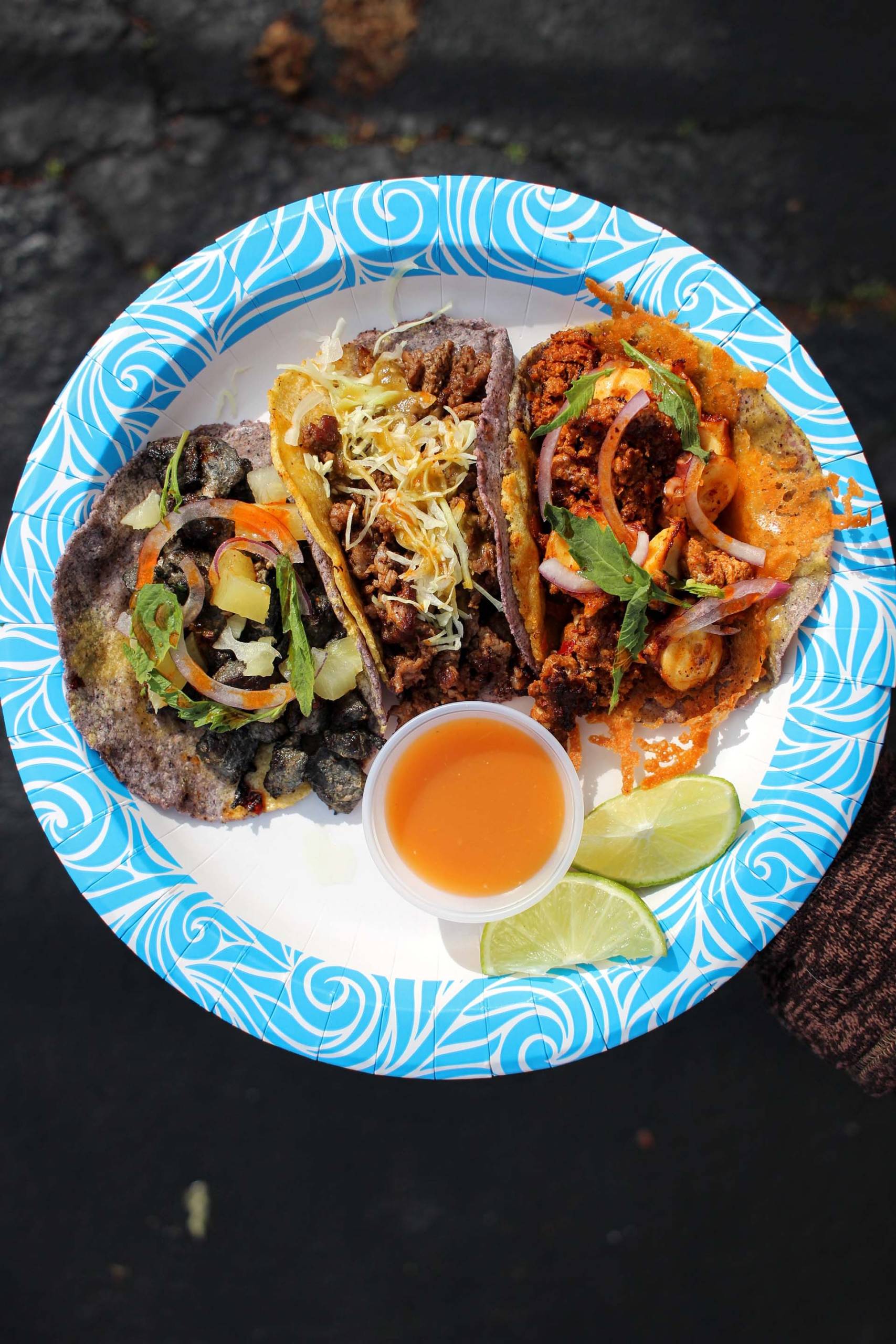At the Pre-Hispanic Mexican Cuisine food truck, a taco might come seasoned with a Mayan spice paste, stuffed with huitlacoche or drizzled with fiery xni-pec salsa — all ingredients that predate Spain’s colonization of Mexico by hundreds of years. That makes it one of just a handful of food businesses in San Jose that specialize in Indigenous Mexican cooking.
Chef Jesus Varguez started the truck in 2021 because he wanted to introduce these Indigenous flavors to the South Bay. He’d had years of experience cooking at upscale restaurants such as Alexander’s Steakhouse, Orchard City Kitchen and Zona Rosa, but he decided to pursue a path that he found more personally meaningful: sharing the cuisine of his Mayan roots.
“Pre-Hispanic, for me,” Varguez says, “is a way to bring back what our ancient food tastes like. I always had this interest to open my own restaurant to my tradition in the Yucatán peninsula. What I see from my grandma and [other] Natives.”

Varguez considers his menu the rebirth of the food of his ancestors. The dishes come in a familiar format — tacos, burritos and quesadillas. But almost every item features pre-colonial ingredients and techniques that set them apart from your typical taco truck.
For instance, the truck offers quesadillas stuffed with huitlacoche, which the Aztecs first enjoyed 700 years ago when they learned that the fungus stunting the growth of their diseased corn had a nutty, mushroomy taste. The quesadillas come with a bright-orange salsa from the Yucatán called xni-pec, which dates back to the Mayan civilization and is made by pickling slices of habanero and onions in citrus juice, providing acidity to balance the fat from the cheese.



